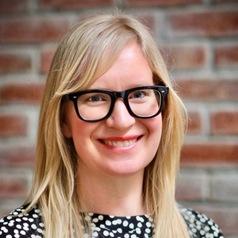
Kora DeBeck
Distinguished Associate Professor, School of Public Policy; Dorothy Killam Fellow; CIHR Applied Public Health Chair, Simon Fraser University
Kora DeBeck, PhD, is a Distinguished Associate Professor in the School of Public Policy at Simon Fraser University and Research Scientist at the BC Centre on Substance Use. She is a Dorothy Killam Fellow and CIHR Applied Public Health Chair. DeBeck has been conducting research involving people who use drugs for over fifteen years and has published over 200 peer-reviewed studies in the area of substance use and drug policy.
Less ![]()

Kory Evans
Assistant Professor of BioSciences, Rice University
The Evans lab is interested in the ecology and evolution of phenotypic diversity, integrating data from developmental biology, ecology, biomechanics and phylogeny to understand this process at various timescales. Bony fishes provide a unique opportunity to ask these questions and study the origins of phenotypic diversity along with the interface between phenotype and environment, within the most species-rich assemblage of vertebrates on the planet. Our research program is centered on three questions:
1. How do patterns of ontogenetic variation scale to patterns of phenotypic diversity?
2. How do intrinsic (ontogenetic constraints) and extrinsic (environmental variation) factors influence patterns of phenotypic diversification and convergence?
3. How do functional traits covary in development and evolution?
Less ![]()
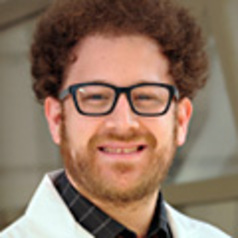
Kory London
Associate Professor of Emergency Medicine, Thomas Jefferson University
Dr. Kory London, MD is a board certified emergency medicine physician who serves his Philadelphia community. He is an Associate Professor of Emergency Medicine at Thomas Jefferson University and serves as the Director of Clinical Operations for the Jefferson Methodist Emergency Department and the Stroke Medical Director for Jefferson Methodist Hospital. He is also his Department's Associate Director of Quality Assurance & Practice Improvement. He is the co-founder of the Jefferson Addiction Multidisciplinary Service (JAMS), a group of physicians, pharmacists, nurses, social workers, recovery specialists and administrators who advocate for and advance the care of individuals who use drugs in Philadelphia.
Less ![]()
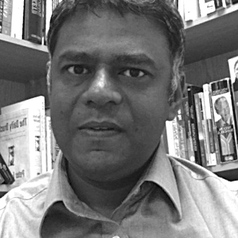
Kosheek Sewchurran
I am currently the program director of the Executive MBA at the GSB, a position I have held since January 2013. My responsibilities include designing the program conversations, interventions and pedagogical outcomes, with a view to nurturing and creating executives who are able, in their actions and their being, to lead authentically in the societal context that humanity experiences. This involves interaction with academics and business leaders; reading and engaging with student and academic research and contemporary media; designing on-going student experiences that maximize the emergence of the collective outcomes of learning, innovation, management competence, authentic leadership, and entrepreneurial will-to-venture; and building thought leadership capacity out of the EMBA program.
As a service to the academy, I serve on the editorial advisory boards of “International Journal of Managing Projects in Business”; “International Journal of Complexity in Management and Leadership”, and “Human Dignity and Humiliation Studies.”
Prior to entering academia, I spent a little over 12 years working as a Systems Engineer on manufacturing projects, optimizing plant automation and designing and implementing enterprise business information systems for Hulett Aluminium (Hulamin).
Before moving to the GSB, I was an Associate Professor in the Department of Information Systems (IS) in the UCT Commerce Faculty. I was an academic in the Commerce Faculty since 2005, and was HOD of Information Systems in 2010-2011.
I hold a doctorate in Project Organising (PhD) from UCT; a Master of Science in Systems Thinking (MSc) from UKZN; a Bachelor of Science Honours in Computer Science (CompSci) from UKZN; and a Bachelor of Science in Software Engineering and Operations Research (BSc) from UNISA.
Less ![]()


Kris Marsh
Associate Professor of Sociology, University of Maryland
Dr. Marsh’s general areas of expertise are the Black middle class, demography, racial residential segregation, and education. She has combined these interests to develop a research agenda that is divided into two broad areas: avenues into the Black middle class and consequences of being in the Black middle class. Currently, Dr. Marsh is writing a book for Cambridge University Press on the wealth, health, residential choices and dating practices of an emerging Black middle class that is single and living alone. Professor Marsh also teaches courses on Research Methods, Race Relations and Racial Residential Segregation. She has been a visiting scholar at the University of Southern California, University of the Witwatersrand in Johannesburg, South Africa
Less ![]()
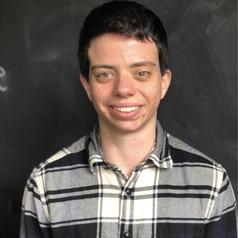
Kris Pardo
Assistant professor of Physics and Astronomy, University of Southern California
I am a cosmologist who focuses on developing tests of fundamental physics theories with astrophysical data. Most of my work has focused on gravitational waves and dark matter. I am currently an Assistant Professor of Physics & Astronomy at the University of Southern California.
Less ![]()
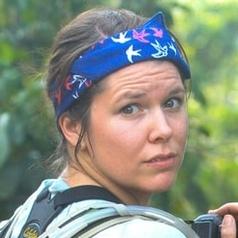
Kris Sabbi
Fellow in Human Evolutionary Biology, Harvard University
Dr. Kris Sabbi researches the ways that internal and external forces shape primate behavior between infancy and adulthood. She earned her Ph. D. from the University of New Mexico (2020) studying sex differences in wild chimpanzee social and hormonal development. Before joining the Department of Human Evolutionary Biology at Harvard, she worked as Postdoctoral Researcher at Tufts University on a collaborative research project aimed to establish chimpanzees as a referential model for studying the evolution of human-like leadership. As a College Fellow in HEB, she teaches courses in human life history evolution, hormones and behavior, and research in primate behavior and ecology.
Less ![]()
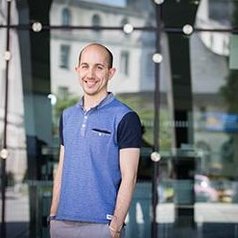
Kris Southby
Researcher in Health Promotion, Leeds Beckett University
Kris completed his PhD in 2013, exploring the social inclusion potential of football fandom for people with a learning disability. He is now a researcher in the Centre for Health Promotion Research at Leeds Beckett University. Kris is involved in all aspects of the research process across the CHPR’s portfolio of work, including data collection, data analysis and report writing. Prior to joining the university, Kris was a researcher and Employment Coordinator for Mencap.
Less ![]()
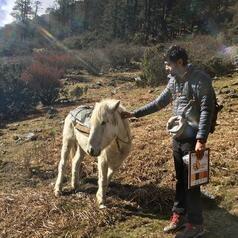
Krish Sanghvi
PhD student at the department of Biology, University of Oxford, University of Oxford
I am interested in ageing, sex, and phenotypic plasticity, and how these drive evolutionary and ecological processes. I am currently studying for a phd, where I investigate different aspects of sperm ageing, it’s causes, and consequences on fitness and sexual selection, using jungle fowl and fruit flies. I also use meta-analytical methods to analyse data on male reproductive ageing.
Less ![]()

Krishanu Roy
Senior Lecturer in Engineering, University of Waikato
Kris is currently a Senior Lecturer in Civil Engineering at the University of Waikato (UoW). He obtained his PhD in Civil Engineering from the University of Auckland and masters in Earthquake Engineering from the Indian Institute of Technology Roorkee (IIT Roorkee). Before joining the UoW, he was a Lecturer at the University of Auckland. After the completion of his master’s degree, Kris spent one year working for Geodata Spa, one of the world’s leading engineering firms for underground structures. During this time, he specialized in tunnel portal design, steel construction, seismic design of steel structures, and the designing of underground structures.
After obtaining his PhD degree, Kris spent a further two years at the Kiwi Steel Holding LTD as a Research and Development Manager before joining the University of Auckland as a Lecturer. Over the last 8 years, his research has continued to revolve around thin-walled structures, covering a wide range of topics, such as modular construction, built-up columns and beams, modal decomposition, cold-formed steel connections, cross-section optimization of single and built-up sections, numerical methods, stainless steel, aluminium structures, steel and aluminium claddings, corroded steel members, 3-D printed structures, durability of cold-formed steel members, weathertightness of metal claddings, design methodologies, general stability and inelastic buckling.
Kris’s current research interests are fire performance of cold-formed steel structures, application of Artificial Intelligence and Machine Learning for the structural prediction of cold-formed steel members, sustainability and life cycle analysis of structures. More recently, he is developing environmental models for life cycle assessment of steel structures and working towards developing methodologies for calculating the Embodied carbon (carbon footprint) of different structural materials.
Less ![]()
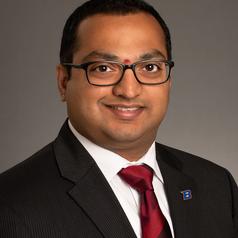
Krishna Pakala
Associate Professor, Boise State University
Dr. Krishna Pakala is an Associate Professor in the Department of Mechanical and Biomedical Engineering at Boise State University. He was the Director for the Industrial Assessment Center funded by the Department of Energy at Boise State University. He served as the Faculty in Residence for the Engineering and Innovation Living Learning Community (2014–2021). He was the inaugural Faculty Associate for Mobile Learning and the Faculty Associate for Accessibility and Universal Design for Learning. He was the recipient of the Foundation Excellence Award, David S. Taylor Service to Students Award and Golden Apple Award from Boise State University. He was also the recipient of 2023 American Society for Engineering Education's (ASEE) National Outstanding Teacher Award, ASEE Pacific Northwest (PNW) Outstanding Teaching Award, ASEE Mechanical Engineering division’s Outstanding New Educator Award and several course design awards. He serves as the campus representative and was the past-Chair for the ASEE PNW Section. His academic research interests include innovative teaching and learning strategies, use of emerging technologies, and mobile teaching and learning strategies.
Less ![]()
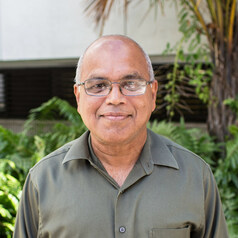
Krishnaswamy Jayachandran
Professor of Agroecology, Florida International University
Krishnaswamy Jayachandran is a soil microbiologist/soil scientist by training. He has co-founded the Agroecology Program through significant funding from USDA to promote education, research, training and outreach activities for students pipelining and capacity building. He enjoys teaching soils and ecosystems, advanced soil resources analysis, agroecology, soil microbiology, soil biology and ecology of South Florida.
Research Areas
His research expertise are on studying soil physical, chemical and biological properties in relation to nutrient cycling and soil quality in wetland and upland systems. Utilizing microbiology as a central tool, we conduct research on microbial structural and functional diversity by traditional and molecular approaches, environmental influence on microbes structure and function, pesticides fate and transport, apply enrichment techniques to isolate and characterize pesticides degrading microbes, biodegradation processes in soil and water.
For the past few years, our laboratory is working on developing novel biological control strategies for the management of invasive exotic plant species in South Florida. In another novel project, we hypothesized to mitigate freshwater toxins as well as marine toxins by applying microbiological techniques. Our group also involved in biological energy production such as biodiesel and hydrogen through plants and microorganisms. His old expertise on arbuscular mycorrhizal fungi and plant growth promoting rhizobacteria, their interactions with plants, and significant role in conservation/restoration measures for natural and agricultural systems continues.
Less ![]()
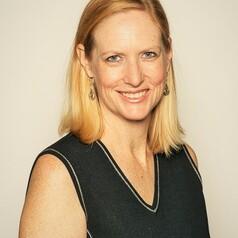
Krista Wiegand
Professor of Political Science, University of Tennessee
Dr. Krista Wiegand is Professor of Political Science and the Director of the Global Security program at the Center and oversees programing, workshops, speakers, and research projects with faculty fellows, a post-doctoral fellow, graduate student research fellows, and undergraduate student research assistants. She joined the UTK faculty in 2014 after nine years on the faculty at Georgia Southern University, and she received her PhD in Political Science from Duke University in 2004. Dr. Wiegand also serves as the co-Editor-in-Chief with Dr. Brandon Prins of International Studies Quarterly, the flagship journal of the International Studies Association
Dr. Wiegand’s research covers territorial and maritime disputes, conflict resolution/management, war and militarized interstate disputes, terrorism and political violence, bargaining strategies, international mediation, arbitration, and adjudication of interstate and civil conflicts, and foreign policy strategies of states in East Asia.
She has published two books: Bombs and Bullets: Governance by Islamic Terrorist and Guerrilla Groups (Routledge, 2010) and Enduring Territorial Disputes: Strategies of Bargaining, Coercive Diplomacy, and Settlement (University of Georgia Press, 2011), and is co-editor of the book Islands of Contention: The China-Japan Border Dispute in a Multidisciplinary Perspective (Routledge, 2015). She has a forthcoming book co-authored with Dr. Emilia Justyna Powell, Notre Dame University, The Peaceful Resolution of Territorial and Maritime Disputes (Oxford University Press, 2023).
Less ![]()
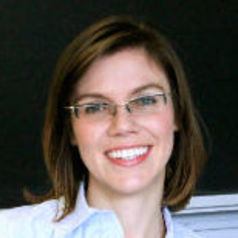
Kristen Barber
Assistant Professor of Sociology, Southern Illinois University
Dr. Barber received her Ph.D. from University of Southern California and joined the SIUC faculty in 2011. She has a full appointment in Sociology and is faculty affiliate in the Women, Gender, and Sexuality Studies Department. Her research and teaching focus on issues of gender and social inequalities.
Barber is on the Gender & Society Editorial Board, is an elected member of the American Sociological Association’s council for the section on Sex and Gender —the largest section of the ASA—is past council member for the ASA section on Sociology of the Body & Embodiment, has served as a grant reviewer for the National Science Foundation, and is Culture Editor for Contexts.
Dr. Barber’s book, Styling Masculinity: Gender, Class, and Inequality in the Men’s Grooming Industry (Rutgers University Press, 2016), looks at the social relations involved in selling beauty to men. Drawing from ethnographic observations and in-depth interviews with employees and clients at high-service men’s salons, this book shows how women beauty workers use feelings, touch, and appearance as institutionalized strategies to create a classed and heterosexualized space for men's status-enhancing consumer practices, as well as to navigate the gendered and sexualized constraints of their jobs.
Less ![]()
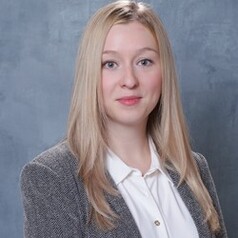
Kristen Ferguson
Assistant Professor of Marketing, University of Notre Dame
Kristen Ferguson is an assistant professor of marketing at the University of Notre Dame's Mendoza College of Business. Her research examines the intersection between creativity and innovation, consumer emotions and social influences, where she applies innovative methods such as virtual reality (VR) technology and Google Ads studies. She teaches foundations of marketing at the undergraduate level. Ferguson earned her bachelor's and master's degrees from Manhattan College and her doctorate in business from the University of Connecticut.
Less ![]()
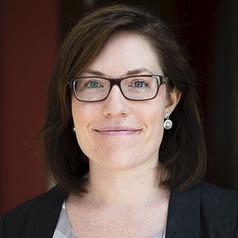
Kristen Schell
Assistant Professor, Mechanical and Aerospace Engineering, Carleton University
Dr. Schell’s research areas include: wind power modelling and forecasting, power systems planning for negative emissions, strategic behaviour in electricity markets, renewable energy policy design, and design for adoption of adaptable, modular microgrids.
Dr. Schell’s current focus is on amplifying the share of electric power generated through renewable energy sources like wind power and overcoming the problems that the integration of these sources poses to system resource adequacy, reliability and resilience. Her models are informed by large, empirical datasets from wind power producers, electric utilities, independent system operators, numerical weather prediction models and earth systems models. She works to develop novel machine learning and optimization methods that support decision-making for the energy transition, from the community to the federal level.
Less ![]()

Kristen Schiele
Associate Professor of Clinical Marketing, University of Southern California
Kristen Schiele specializes in the areas of digital marketing and social media, and serves on the Board of Directors for the Marketing Educators’ Association. Her primary areas of research include design thinking, digital marketing, and innovations in marketing education, and she received the Fulbright Scholar Award to teach and conduct research in Portugal. Dr. Schiele is co-author of the Mobile Marketing Essentials textbook, and frequently speaks on current and emerging trends in user experience and human-centered design.
Less ![]()

Kristi Curry Rogers
Professor of Biology and Geology, Macalester College
I’m a vertebrate paleontologist most interested in studying dinosaur evolution and paleobiology. My current research focuses on the evolutionary history of Titanosauria – the latest surviving and perhaps most diverse lineage of long- necked sauropod dinosaurs. Titanosauria includes over 40 species that had a near- global distribution during the Late Cretaceous. They are of particular interest to me and my students because of the incredible array of adult body sizes attained within the group. Titanosauria includes the largest land-living animals of all time, as well as species thought to be dwarfs. Among dinosaurs, titanosaurs may be one of the only groups to experience a body size reduction during their evolutionary history. With regard to paleobiology, I am most interested in understanding dinosaur life history, and utilize bone histology to explore and reconstruct growth patterns in extinct dinosaurs, living birds, and other vertebrates. To these ends, I also conduct field research in Montana, Madagascar, and Zimbabwe.
Less ![]()
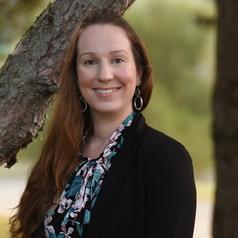
Kristi Heather Kenyon
Associate Professor, Human Rights, University of Winnipeg
Kristi Heather Kenyon is an associate professor in the human rights programme at the University of Winnipeg's Global College. With an emphasis on sub-Saharan Africa, her research focuses on health and human rights, examining how and why civil society groups mobilise on stigmatised conditions and populations, and how health and human rights are understood in social and cultural context.
Her 2017 book Resilience and Contagion: Invoking Human Rights in African HIV Advocacy (McGill-Queens University Press) interrogates why, when and how NGOS use human rights in HIV advocacy.
Prior to her current appointment, she held a SSHRC postdoctoral fellowship at Dalhousie University and a Centre for Human Rights postdoctoral fellowship at the University of Pretoria. She completed her PhD in political science at the University of British Columbia supported by the Trudeau Foundation and SSHRC.
Her research is informed by more than 15 years of work in, with and on civil society, including work as a human rights practitioner in southern Africa and southeast Asia and service on the board of local and international development organisations in Canada and Botswana.
She was a 2017-2019 CIFAR-Azrieli Global Scholar with the Canadian Institute for Advanced Research, and is a research fellow with the Centre for the Study of Security and Development at Dalhousie University.
Less ![]()

Kristian Gustafson
Brunel University London
Dr. Gustafson is Reader in Intelligence & War at Brunel University's Centre for Intelligence and Security Studies. After an MA at the University of Alberta, Canada, he moved to the UK to take his PhD at Downing College, Cambridge. Before coming to Brunel, Dr. Gustafson was senior lecturer in War Studies at the Royal Military Academy, Sandhurst. He has served in the Canadian Army and as a Reservist in the British Army, and taught at the Joint Services Command and Staff College of the United Kingdom. He is also an Associate Researcher in the Norwegian Intelligence School's Centre for Intelligence Studies.
Dr. Gustafson has conducted consultancy and advisory work for the UK MOD as well as for TV and film. Dr. Gustafson has delivered professional development courses to multiple Allied and partner organisations, including the EU Intelligence Centre, and the governments of Norway, Latvia, France and the United Arab Emirates. In 2013 he worked as an intelligence advisor for the General Command Police Special Units (GCPSU) of the Afghan Ministry of Interior.
Less ![]()
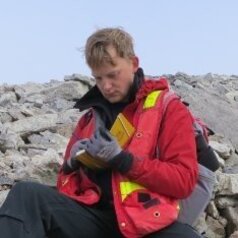
Kristian Svennevig
Senior Researcher, Department of Mapping and Mineral Resources, Geological Survey of Denmark and Greenland
Less ![]()
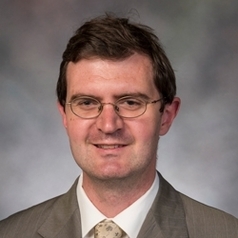
Kristian Coates Ulrichsen
Baker Institute Fellow for Kuwait, Rice University
Kristian Coates Ulrichsen, Ph.D., is the Baker Institute fellow for Kuwait. Working across the disciplines of political science, international relations and international political economy, his research examines the changing position of Persian Gulf states in the global order, as well as the emergence of longer-term, nonmilitary challenges to regional security. Previously, he worked as senior Gulf analyst at the Gulf Center for Strategic Studies and as co-director of the Kuwait Programme on Development, Governance and Globalisation in the Gulf States at the London School of Economics (LSE). He is a visiting fellow at the LSE Middle East Centre and an associate fellow at Chatham House in the United Kingdom.
Coates Ulrichsen has published extensively on the Gulf. His books include “Insecure Gulf: the End of Certainty and the Transition to the Post-Oil Era” (Columbia University Press, 2011) and “The Political Economy of Arab Gulf States” (Edward Elgar Publishing, 2012). In addition, he is the author of “The Logistics and Politics of the British Campaigns in the Middle East, 1914-22” (Palgrave Macmillan, 2011) and “The First World War in the Middle East” (Oxford University Press, forthcoming). He is currently completing a book on Qatar and the Arab Spring and has been commissioned to write a textbook on the Gulf and international political economy. Coates Ulrichsen’s articles have appeared several academic journals, and he consults regularly on Gulf issues for Oxford Analytica and the Norwegian Peacebuilding Resource Centre. He also writes regularly for Open Democracy and Foreign Policy, and authors a monthly column for Gulf Business News and Analysis.
Coates Ulrichsen holds a doctorate in history from the University of Cambridge.
Less ![]()
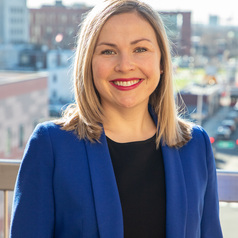
Kristie McAlpine
Assistant Professor of Management, Rutgers University
Kristie McAlpine is an assistant professor of management at Rutgers University. She received her B.A. in psychology from Kalamazoo College, her master'd degree in human resources and labor relations (MHRLR) from Michigan State University, and her M.S. and Ph.D. in human resource studies from Cornell University. Kristie’s research explores three themes associated with the changing nature of work (e.g., due to technological advances, changing demography): (1) virtual work, (2) diversity, and (3) the work-family interface. Her research has been published in academic outlets such as Annual Review of Organizational Psychology and Organizational Behavior, Organizational Psychology Review, and Industrial and Labor Relations Review and has been featured in news outlets such as The New York Times and the BBC.
Less ![]()

Kristie Poole
Postdoctoral fellow, Department of Psychology, Brock University
Kristie completed her her PhD in Developmental Psychology (2020) at McMaster University. Subsequently, she earned a SSHRC-funded Postdoctoral position at the University of Waterloo, where she studied children's social and emotional development, with a particular focus on individual differences in shyness.
Less ![]()
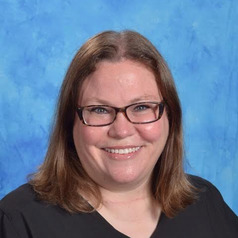
Kristin Ahrens
Pediatric Nurse Practitioner, Adjunct Instructor of Nursing at Purdue Global, Purdue University
Kristin Ahrens, DNP, RN, CPNP-PC, Purdue Global University, is an Adjunct Instructor at Purdue Global School of Nursing. She earned her Bachelor’s in Kinesiology from the University of Michigan and her MSN and DNP from Case Western Reserve University. She has worked as a Pediatric Nurse Practitioner in a school-based health clinic for over 22 years. In addition, she has taught Master’s level nursing courses for 10 years and continues pursuing her own learning. Her doctoral focus was on cardiac risk factors in children and she has special interest in adolescent health. She served as the Nurse Practitioner representative on the State of Michigan Board of Nursing from 2017-2021.
Less ![]()

Kristin Graham
Lecturer in Podiatry, University of South Australia
I currently work as a teacher and researcher in the Allied Health and Human Performance unit at UniSA and hold an Adjunct Fellowship in the Discipline of Psychiatry at the University of Adelaide. My areas of experise span podiatry and psychology.
With over 25 years’ experience as a clinical podiatrist, in 2014 I decided to follow my passion of understanding what motivates human behaviour and completed a Bachelor of Psychological Science at Flinders University. I then recipieved the inaugural Rotary Health Australia ANZAC PhD Scholarship to complete a PhD at the Centre for Traumatic Stress Studies, The University of Adelaide Medical School. My PhD explored the nexus between physical and mental health through exploring the impact of deployment traumatic experiences on physical and mental symptoms in deployed Australian Defence Force (ADF) personnel. My passion is to explore creative ways to expand knowledge and understanding, challenge convention, and deliver impactful outcomes that make a real difference to people’s lives.
As a clinical podiatrist I have worked in a diverse range of settings including entrepreneurial business activities such as establishing the first locum podiatry service in South Australia as well as public, community, and private practice in urban and rural settings. I am still involved in private practice, which keeps me connected to contemporary issues in health practice. Good business acumen and clinical experience underpin my current role in the UniSA podiatry program.
My current research interests include:
· The impacts of deployment of Australian Defence Force personnel including: the overlap of physical and mental health symptoms; the association of health symptoms with suicide; and the impact of lifetime traumas on physiological dysregulation.
· The use of telehealth and virtual reqality to improve outcomes and access to services in diabetes related foot disease in rural, remote, and Aboriginal and Torres Straight communities.
· the impact of social determinants of health on foot ulcers and amputation rates in diabetes related foot disease.
· the impact of the health practitioner-patient relationship on patient behaviour and health outcomes.
· pharmacological endorsement and prescribing practices of podiatrists.
Less ![]()
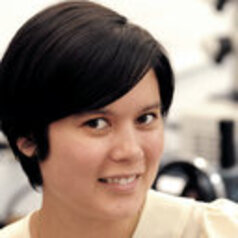
Kristin Myers
Professor of Mechanical Engineering, Columbia University
Kristin M. Myers’ solid mechanics research program studies the biomechanics of biological soft tissues with a specific focus on the female reproductive system and pregnancy. Her Columbia research group is one of only a few engineering teams in the world creating biomechanical models of pregnancy to uncover structural mechanisms of preterm birth.
Less ![]()
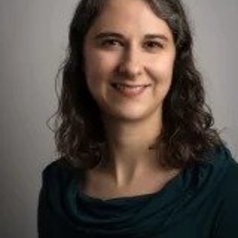
Kristin Naragon-Gainey
Associate Professor, School of Psychological Science, and Director, Emotional Wellbeing Lab, The University of Western Australia
Dr. Kristin Gainey is an Associate Professor at the School of Psychological Science at UWA, where she directs the Emotional Wellbeing Lab. She is also a registered clinical psychologist in the United States. Her research and clinical work focuses on affective processes as they relate to depression, anxiety, and wellbeing, and much of her recent research incorporates heart rate variability to examine emotion regulation and mindfulness in daily life. She is also interested in assessment, multivariate statistical analysis, and ecological momentary assessment designs. Prior to joining UWA, Kristin was an Assistant and then Associate Professor of Psychology at the University at Buffalo, the State University of New York, from 2013-2020. Kristin completed her PhD in clinical psychology at the University of Iowa, followed by a clinical internship year at the Seattle Veterans Administration Medical Center and a postdoctoral position at Boston University. Kristin’s research has been funded by the National Institutes of Health, and she has received early career awards from the American Psychological Society, American Psychological Association, and the Society for Research in Psychopathology. She is active as a reviewer and editor, serving as an Associate Editor forPsychological Assessment and Self and Identity and on the editorial boards of several journals.
Less ![]()
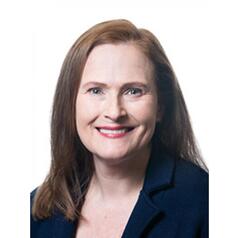
Kristin Omberg
Group Leader, Chemical and Biological Signatures, Pacific Northwest National Laboratory
Kristin Omberg joined Pacific Northwest National Laboratory (PNNL) in 2015. She is the group leader of the Chemical and Biological Signatures Group, which comprises about 60 researchers working to develop and integrate experimental and data analytics techniques spanning chemistry, biology, and advanced materials to identify and solve scientific challenges of national security importance and address emerging threats. Omberg’s technical work focuses on developing science and technology solutions that can be deployed in operational environments or used to inform policy decisions. She recently led the team that established a Clinical Laboratory Improvement Amendments certified high-complexity testing laboratory to process COVID-19 specimens at PNNL and worked with the Departments of Energy and Health and Human Services to evaluate methods for COVID-19 specimen analysis. She is currently supporting the National Nuclear Security Administration in developing its Bioassurance Program.
Before joining PNNL, she spent more than 15 years at Los Alamos National Laboratory, where she was a program manager and principal investigator for numerous projects for the Department of Homeland Security and Defense. She led field experiments and operational deployments involving environmental sampling for biological agents, investigated the persistence, fate, and transport of chemical and bioterrorism agents in outdoor environments; and developed statistically based methods for evaluating detection protocols.
Less ![]()
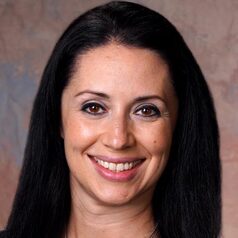
Kristin Scaplen
Assistant Professor of Neuroscience, Bryant University
Kristin Scaplen, Assistant Professor, grew up in Connecticut, not far from the Rhode Island border and has lived in New England for much of her life. She received a B.S. in Biology and a B.S. in Psychology from the University of Connecticut and her PhD in Neuroscience from Brown University. Prior to coming to Bryant, she spent her postdoc using sophisticated neurogenetic tools to study the persistence of memory in the context of alcohol use. She intends to continue investigating how neural circuits for pathologic memories are established and change with experience to ultimately guide maladaptive reward seeking.
Less ![]()
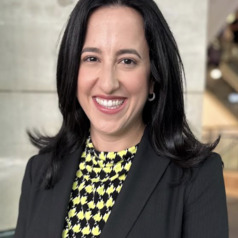
Kristin Xenos
Research Assistant, College of Health, Medicine and Wellbeing, School of Biomedical Science and Pharmacy, University of Newcastle
Senior Project Officer at the Australian Commission on Safety and Quality in Health Care and a Research Assistant in the School of Biomedical Science and Pharmacy at the University of Newcastle.
Less ![]()

Kristin Ann Hass
Professor of American Culture, University of Michigan
Kristin Ann Hass is a Professor in the Department of American Culture and Faculty Coordinator of the Humanities Collaboratory at the University of Michigan. She lectures, teaches, and writes about nationalism, memory, publics, memorialization, militarization, race, visual culture, and material culture studies.
She has written three books. Blunt Instruments: Recognizing Racist Infrastructure in Memorials, Museums and Patriotic Practices helps readers to identify, classify and name elements of our everyday landscapes and cultural practices that are designed to seem benign or natural but which, in fact, work to maintain powerful structures of inequity. Sacrificing Soldiers on the National Mall is a study of militarism, race, war memorials and U.S. nationalism and Carried to the Wall: American Memory and the Vietnam Veterans Memorial is an exploration of public memorial practices, material culture studies and the legacies of the Vietnam War.
Hass is also the editor of Being Human During COVID. Over the course of the pandemic, the questions that occupy the humanities—about grieving and publics, the social contract and individual rights, racial formation and xenophobia, ideas of home and conceptions of gender, narrative and representations and power—have become shared life-or-death questions about how human societies work and how culture determines our collective fate. The contributors in this collection draw on scholarly expertise and lived experience to try to make sense of the unfamiliar present.
Hass is also the faculty coordinator for the University of Michigan Humanities Collaboratory. The Humanities Collaboratory is a bold investment by the university in collaborative, multi-generational, inclusive, and transformational humanities scholarship that engages compelling questions for the academy and the world beyond. The Humanities Collaboratory gives singularly generous grants to support innovative and ambitious forms of humanities scholarship. Our mission is to give humanists access to significant resources to enable new kinds of work on the remarkable diversity of human experience across the globe.
She holds a Ph.D. in American studies and has worked in several historical museums, including the National Museum of American History. She was also the co-founder and Associate Director of Imagining America: Artists and Scholars in Public Life, a national consortium of educators and activists dedicated to campus-community collaborations.
Affiliations:
Faculty Coordinator of the Humanities Collaboratory
Less ![]()
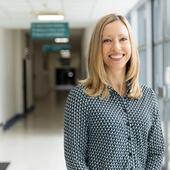
Kristina Edvardsson
Associate Professor, School of Nursing and Midwifery and the Judith Lumley Centre, La Trobe University
Less ![]()
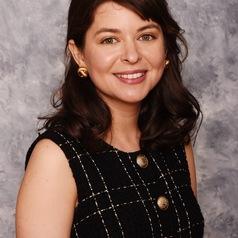
Kristina Fullerton Rico
Research Fellow, Center for Racial Justice, Ford School of Public Policy, University of Michigan
Kristina Fullerton Rico is a Research Fellow at the Center for Racial Justice at the Ford School of Public Policy. Her research examines the impacts of U.S. immigration policies that lead unauthorized immigrants and their families to endure long-term separation.
Fullerton Rico's current projects focus on the experiences of undocumented Mexican immigrants in New York City who are aging out of the workforce, the experiences of older return migrants who find themselves in Mexico after decades in the United States because they were unable to adjust their immigration status, and the experiences of separated parents and children. She recently published an article about grieving from afar in Social Problems. Her work has been funded by the Russell Sage Foundation and Sociologists for Women in Society.
Less ![]()
- Market Data




















